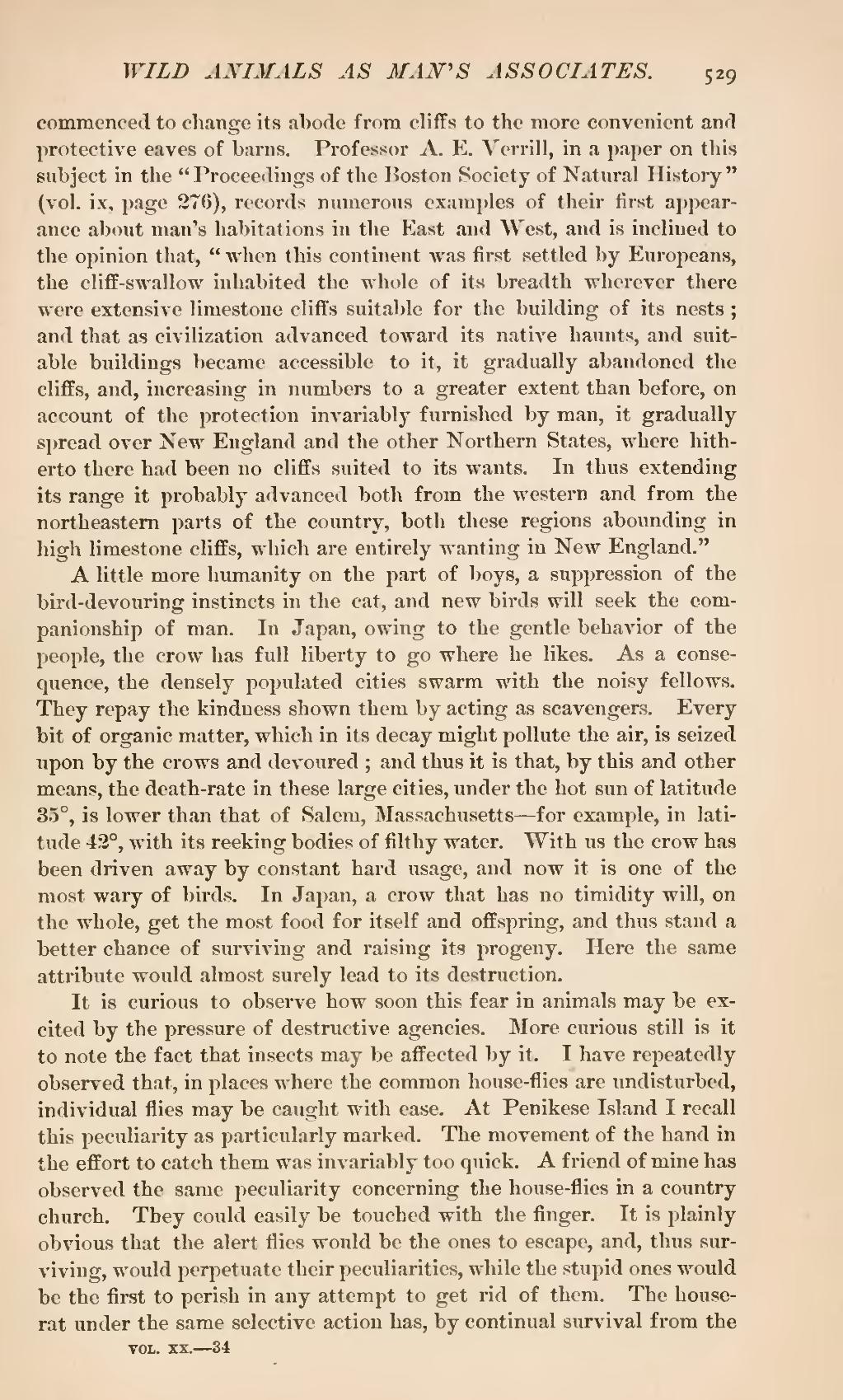commenced to change its abode from cliffs to the more convenient and protective eaves of barns. Professor A. E. Verrill, in a paper on this subject in the "Proceedings of the Boston Society of Natural History" (vol. ix, page 276), records numerous examples of their first appearance about man's habitations in the East and West, and is inclined to the opinion that, "when this continent was first settled by Europeans, the cliff-swallow inhabited the whole of its breadth wherever there were extensive limestone cliffs suitable for the building of its nests; and that as civilization advanced toward its native haunts, and suitable buildings became accessible to it, it gradually abandoned the cliffs, and, increasing in numbers to a greater extent than before, on account of the protection invariably furnished by man, it gradually spread over New England and the other Northern States, where hitherto there had been no cliffs suited to its wants. In thus extending its range it probably advanced both from the western and from the northeastern parts of the country, both these regions abounding in high limestone cliffs, which are entirely wanting in New England."
A little more humanity on the part of boys, a suppression of the bird-devouring instincts in the cat, and new birds will seek the companionship of man. In Japan, owing to the gentle behavior of the people, the crow has full liberty to go where he likes. As a consequence, the densely populated cities swarm with the noisy fellows. They repay the kindness shown them by acting as scavengers. Every bit of organic matter, which in its decay might pollute the air, is seized upon by the crows and devoured; and thus it is that, by this and other means, the death-rate in these large cities, under the hot sun of latitude 35°, is lower than that of Salem, Massachusetts—for example, in latitude 42°, with its reeking bodies of filthy water. With us the crow has been driven away by constant hard usage, and now it is one of the most wary of birds. In Japan, a crow that has no timidity will, on the whole, get the most food for itself and offspring, and thus stand a better chance of surviving and raising its progeny. Here the same attribute would almost surely lead to its destruction.
It is curious to observe how soon this fear in animals may be excited by the pressure of destructive agencies. More curious still is it to note the fact that insects may be affected by it. I have repeatedly observed that, in places where the common house-flies are undisturbed, individual flies may be caught with ease. At Penikese Island I recall this peculiarity as particularly marked. The movement of the hand in the effort to catch them was invariably too quick. A friend of mine has observed the same peculiarity concerning the house-flies in a country church. They could easily be touched with the finger. It is plainly obvious that the alert flies would be the ones to escape, and, thus surviving, would perpetuate their peculiarities, while the stupid ones would be the first to perish in any attempt to get rid of them. The house rat under the same selective action has, by continual survival from the

